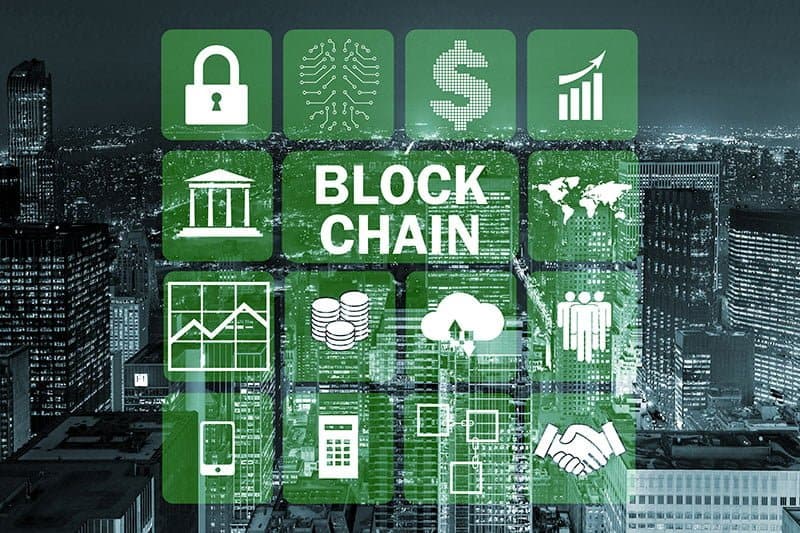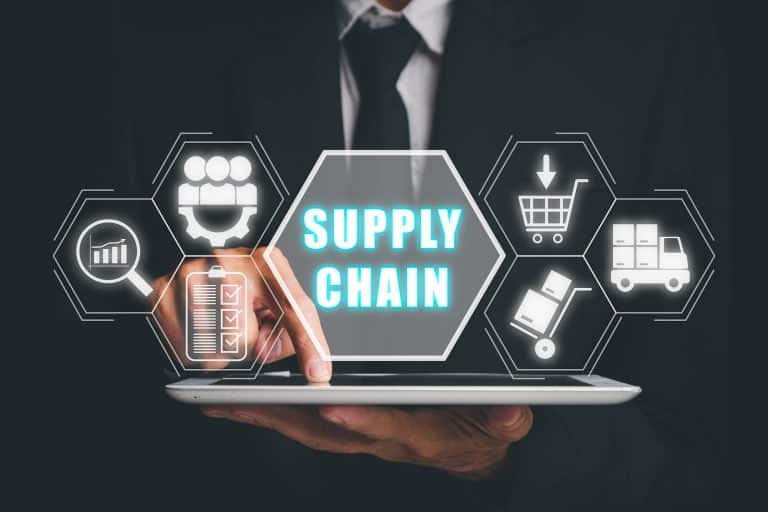SAP Blockchain: What You Need to Know!
Table of Contents
ToggleThere is likely no other topic that is as controversial around the IT industry, when it comes to blockchain & how it has created a revolution across the globe. However, even after gathering its immense success, the platform lacked integration with enterprise applications. Considering an ecosystem that is much dominated by startups of all shapes & sizes, blockchain integration functionalities.
However, with SAP Cloud Platform Blockchain’s introduction, integrating your enterprise applications to the platform is no longer a distant dream. SAP blockchain feature allows partners & users of the cloud platforms, to extend and build applications with blockchain technology.
Integrating the SAP Blockchain into your cloud system, adds a new dimension to operations as it unlocks new functionalities into the blockchain ecosystem.
Now, for those readers who might still get confused around ‘Blockchain’ and ‘SAP Blockchain,’ let’s settle differences first!
SAP Blockchain: How Does It Function?
The SAP Blockchain executes operations as a Blockchain-as-a-Service field. It allows customers to develop their own blockchain extensions for existing applications that they are widely accepted over the industries. It makes the use of open standards, allowing the users to create new consortia-based blockchain models that are private. This way, users can easily explore blockchain with complete reliability on the transparency of operations and accounting executions.
It provides businesses with a low-risk gateway that allows enterprises to access the distributed ledger technology, present in the cloud. Further, it integrates the application with established solutions over the SAP platform, creating synergies over multi-party processes. This is how the it allows organizations to integrate the blockchain technology over their existing applications.
Key Benefits of Implementing SAP Blockchain
SAP Blockchain works differently, when compared to the functioning of other relevant blockchain platforms. It doesn’t aim to implement the fundamentals of Blockchain, but caters to provide a great ecosystem for users & clients to integrate the blockchain framework into their systems. Listed below are some of the top reasons why we need it.
- Centered Business Process: All the blockchain services covered by the SAP platform are developed, keeping in mind business growth & development. Therefore, it becomes easy to store businesses’ critical values, including use cases, impacted processes, data integrity, and quality. This way, it makes it easy for companies to integrate such solutions into their platform.
- Improved Network Experience: When you integrate SAP-based blockchain services for your business, it ensures that the networks work seamlessly to ensure success at operations. Their leading expertise in network management, allows enterprises to provide transactions in a safe and secure environment.
- Easy Transportation Management: The platform focuses on simplifying all the possible transportation modes used by industries to facilitate trades across different geographies. Buyers, Sellers, authorities, and banks, and tracking process statuses, every step of the transportation process can be accounted for in real-time.
- Global Tracking: SAP Blockchain enables end-to-end tracking and reporting of multiple business processes and objects, across supply chain networks. Blockchain technology allows the SAP platform to allow seamless monitoring, making the available information immutable and tamper-proof. This way, businesses can easily adhere to product authenticity and provenance. In addition to the global tracking feature, businesses can also access & track back the Blockchain platform’s information.
- Prevention against Payment Fraud: It acts as a reliable and efficient tool to combat any form of fraud in treasury. The platform implements a theft-proof environment by creating a simple, auditable source, to be accounted for by the supplier. Both the sellers and the buyers are placed over a common repository in the platform. This way, it ensures one-tap access to the supplier’s process of the master data update while assuring preservation and auditability of business relationships.
SAP Blockchain: Another Fancy Blockchain Platform?
No, neither SAP HANA nor SAP Blockchain, are platforms that revolve around the concept of interoperability and collaboration. SAPs Blockchain takes a different approach by allowing existing enterprises to integrate with the blockchain platform seamlessly.
It allows these SAP Implementation companies to connect with any network that supports blockchain, via cloud medium. The platform establishes a link between SAP HANA and the cloud, allowing the presentation of on-chain data, over a set of column store tables.
Further, considering the factor that it offers transparent, unprecedented levels of security with complete access to accountability, we can conclude that SAP Blockchain is an entirely different concept.
Concluding Thoughts: Is SAP Cloud Platform Ready to Use?
So far, the entire ecosystem of the SAP blockchain looks promising. The provision to integrate blockchain solutions, without having to develop an infrastructure, brings us to the new age of using the platform. Further, its greater role in linking Blockchain to SAP platform, makes the whole process more transparent and reliable for use. Lastly, considering the impact that it can put on the global supply chain, the technology is indeed a revolution!
FAQ
A: SAP blockchain refers to the integration of blockchain technology into SAP’s enterprise software solutions. Blockchain is a decentralized and distributed ledger technology that allows multiple parties to maintain a shared database in a secure and transparent manner. SAP utilizes blockchain technology to enhance data integrity, traceability, and trust across various business processes, enabling secure and efficient transactions and information exchange.
A: Implementing SAP blockchain can offer several benefits. It enables increased transparency and immutability of data, ensuring trust and accuracy in business transactions. SAP blockchain solutions can enhance supply chain management by providing real-time visibility and traceability of goods, reducing fraud and counterfeiting risks. It can also streamline complex processes by automating and digitizing workflows, reducing paperwork and administrative overhead. Additionally, SAP blockchain can facilitate secure and efficient cross-border payments, simplify regulatory compliance, and foster collaboration among ecosystem partners.
A: Implementing SAP blockchain typically involves a phased approach. Organizations need to identify suitable use cases that can benefit from blockchain technology, such as supply chain traceability or digital identity management. The implementation process involves defining the requirements, designing the blockchain network, integrating it with existing systems and data sources, and testing the solution. SAP provides tools and frameworks, such as SAP Cloud Platform Blockchain service, to facilitate the development and deployment of blockchain applications.
A: SAP blockchain implementation can benefit various industries. Industries with complex supply chains, such as manufacturing, retail, and food and beverage, can leverage SAP blockchain to improve traceability, reduce counterfeit products, and enhance quality control. Financial services can benefit from increased transparency and security in payment transactions. Healthcare organizations can improve patient data privacy and interoperability. Additionally, industries like logistics, energy, and public sector can explore the potential of SAP blockchain to optimize processes and enhance trust in their operations.
A: There are several real-world examples of SAP blockchain implementation. For instance, SAP has collaborated with companies like Mahindra Group to implement blockchain in supply chain processes, enabling end-to-end visibility and traceability of agricultural products. Another example is the partnership between SAP and Swiss Post to develop a blockchain-based system for verifying the authenticity of diplomas and certificates. These examples demonstrate how SAP blockchain is being used to address specific business challenges and deliver tangible benefits in various industries.




